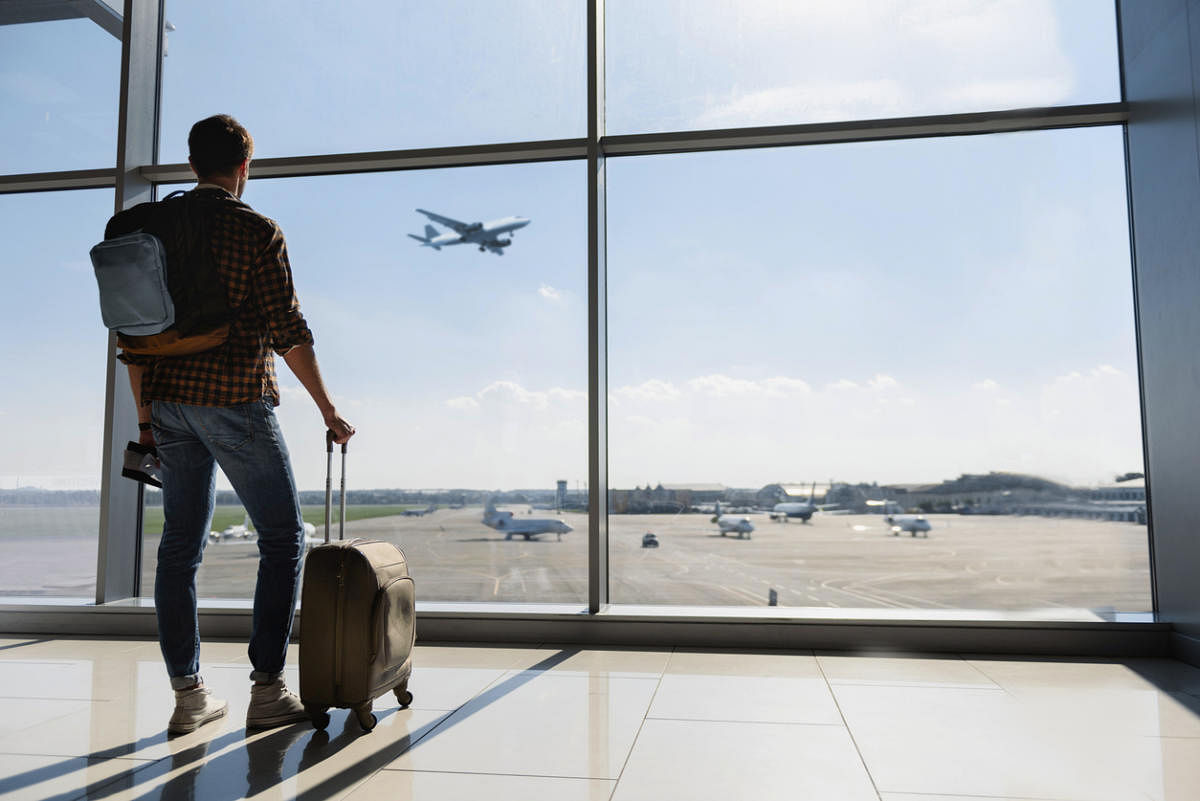
With Covid-19 cases declining in India, some foreign countries have opened their gates to Indian travellers. However, there are a few restrictions.
Providing a negative RT-PCR certificate and undergoing 14-day quarantine is mandatory in most countries.
Metrolife spoke to a few officials of international travel agencies about the interests and concerns raised by travellers to visit countries abroad amid pandemic curbs.
Rajeev Kale, president and country head, Thomas Cook, says, “Accelerated vaccine drives, reducing infection rates, and easing of restrictions have resulted in positive consumer sentiment.”
He said that around 18% of travellers are ready to travel immediately and 46% of their respondents have preferred international travel owing to relaxation of protocols.
“With festivals and events such as Diwali, Christmas, IPL, Expo 2020 in the UAE, the T20 World Cup in Dubai and Oman, and the FIFA World Cup in Qatar, we anticipate more people to travel in the coming months,” says Daniel D’souza, president and country head, SOTC Travel.
About preferred destinations, Rajeev, says, “Russia and Switzerland are two countries among people’s wishlist. People have also shown interest to travel to Dubai, Maldives, Thailand, and Bali. Long haul destinations such as France, Spain, and Portugal will witness good footfall mostly in the festive season later this year.”
He added that families, millennials, ad hoc groups of friends, and working professionals are on their toes to enjoy vacations abroad.
“Micro trips, nature and beach destinations, adventure sports, wildlife holidays, and workations are some travel trends among Gen Z and millennials,” says D’souza.
However, despite the countries opening up for travel, people have become way more aware of their surroundings than before, says D’souza.
“Many travellers have reiterated their need for refundable or zero cancellation products, and more than half of them have opted for complete re-sanitation of rooms,” she added.
She says requests for fully vaccinated hotel staff and drivers were other common conditions.
“Air India and Go Air have not been giving any refunds to people since last year after flight cancellations,” says Akhil, co-founder, IRI iFly Holidays, who attends 50 to 60 calls every day answering queries of people about quarantine rules prevailing in each country.
“Some people may travel via a third country to their final destination to avoid a 14-day quarantine period for those coming from India,” he says.
Akhil expects more travellers to visit the Maldives once the country opens its borders to Indian tourists after July 15.
“Many international destinations are accepting completely vaccinated travellers or an RT-PCR negative report (no longer than 72 hours from travel). These health protocols are required for safe travel,” says Rajeev.
The Union Government has also announced a stimulus to bolster tourism in the country.
Madhavan Menon, MD, Thomas Cook India, says, “The stimulus package covers 100% guarantee for loans up to Rs 10 lakh per government recognised Travel & Tourism stakeholder (TTS); up to Rs 1 lakh financial support to over 11,000 licensed guides at state or regional level; and Rs 5 lakh visas to serve and catalyse much-needed inbound inflows, reflects the Centre’s focus on the travel and tourism sector.”
To help customers during travel, D’souza says that her company has announced a few strategies. “TravShield, a comprehensive health commitment, will safeguard customers along their travel journey. ‘Holiday First and Pay When You Return to’, covers financial
security.”
He says that they have also launched an initiative, Doctor on Call 24x7 service, in partnership with Apollo Clinics that offers free and expert guidance for safe holiday planning.
Countries that are allowing Indians
Russia
Travellers are required to carry a negative RT-PCR test report that should have been issued 72 hours before their arrival. Normal antibody tests will not be accepted.
Turkey
Travellers should undergo quarantine for 14 days in certain places. There may be random PCR testing for travellers upon arrival. Before boarding a flight to Turkey, they are required to carry a negative RTPCR report for arrival.
Iceland
People irrespective of the country can visit here. Travellers must undergo a Covid screening upon arrival. All have to undergo quarantine till another test is taken after five days. Producing any earlier infection and recovery certificate or vaccination certificate will be accepted if not for negative PCR report.
Serbia
The country is open to all Indians. Travellers are expected to produce a negative RT-PCR test report that is no older than 48 hours before arrival.
Egypt
Indians are allowed to travel if they produce a negative RT-PCR test report not older than 72 hours of boarding flight. But the number of flights operating are limited.
Necessary quarantine is required upon arrival till a negative test result is obtained. Covishield is an approved vaccine here.
Uzbekistan
Compulsory quarantine of 14 days for all travellers. The RT-PCR test report not older than 72 hours before arrival.
Afghanistan
Travellers are not recommended to travel to Kabul in the next few weeks because of the rise in Covid-19 cases. The RT-PCR negative test report should not be older than 72 hours before arrival.
South Africa
An RT-PCR negative test report should not be older than 72 hours before arrival. If travellers arrive without the test report, then a self-quarantine is a must at their cost. Covishield is an approved vaccine here.
Costa Rica
Either produce an RT-PCR report or a vaccination report upon arrival. Travellers are also required to fill a health pass form on arrival.
Mauritius
The island country is opening the travel gate only after July 15. Travellers should take a Covid test and undergo a 14-day quarantine.